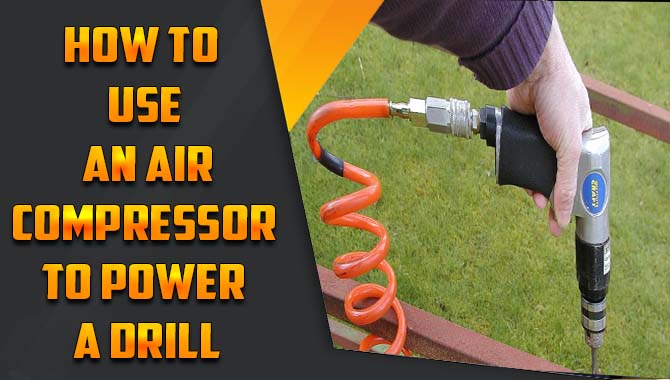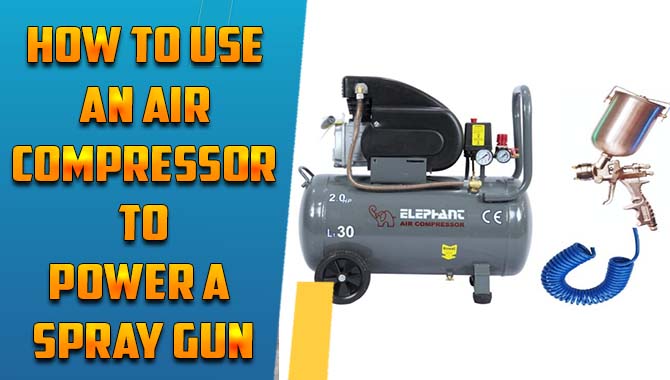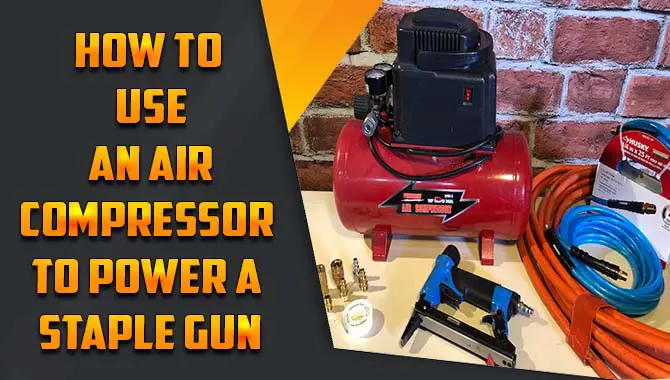Air compressors are extremely important for any construction site. They are used to pump air into a compressed form, ensuring that all the tools have enough air supply.
In most cases, air compressors are electric units, but there are also manual ones. The maintenance of an air compressor is essential to ensure its good performance and long life. There are many things you need to keep in mind to ensure efficient maintenance of your air compressor system. Read to know 10 maintenance tips for air compressor tanks.
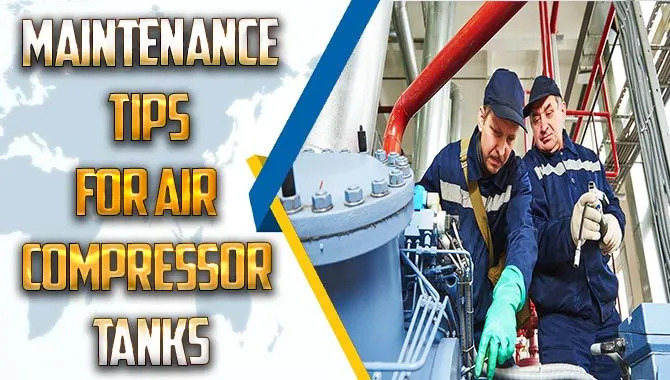
10 Maintenance Tips For Air Compressor Tanks
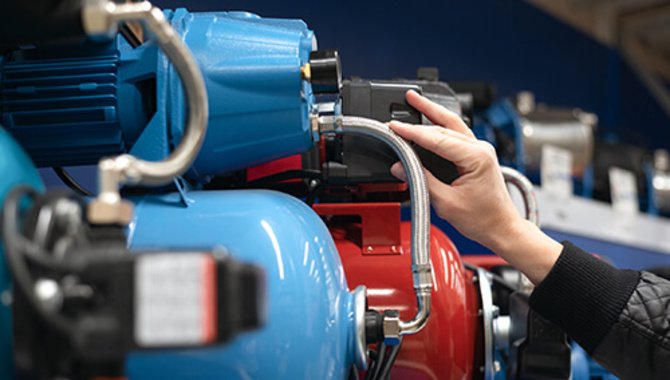
It’s important to regularly change the oil of your air compressor, as oil protects vital parts from corrosion and lubricates the system. A good rule of thumb is to change the oil every 500-1000 hours of use depending on operating conditions and how much use the compressor gets.
Similarly, it’s important to replace the separator element of your air compressor at least once a year. This element filters the air before it enters your compressor and ensures that only clean air is entering the system, which can help improve performance and decrease wear and tear on your compressor.
1. Follow The Instruction In The Manual
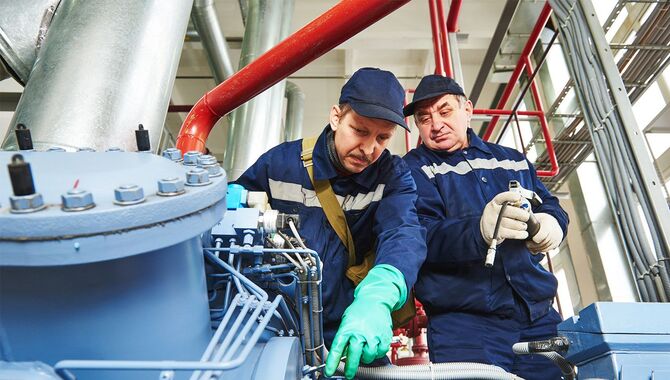
The operation and maintenance manual should be checked to determine maintenance intervals and oil/fluoride recommendations. Daily tasks include checking for leaks, inspecting oil dipstick and sight glass, monitoring radiator coolant, and checking the air cleaner service indicators. Weekly tasks include inspecting fan and alternator belts, battery connections, and tires on wheel-mounted air compressors.
Monthly tasks include inspecting the compressor, ensuring tire lug nuts are tight, and checking hoses for fraying. When checking for air leaks, isolate the compressor, observe the tank pressure gauge, and coat all fittings with a soap and water solution to check for bubbles. This will help ensure the compressor continues to operate efficiently.
2. Drain Tanks Moisture
Tanks are an important part of air compressor systems and must be regularly maintained and checked for signs of damage. They must be drained regularly to prevent water buildup. Generally, tanks should be drained periodically, especially after heavy usage.
It is also important to clean the fuel tank regularly to prevent water buildup in the system. Besides, it is vital to check systems like filters and separators for removing other contaminants like oil. This will help protect the compressor from damage. Inspecting and cleaning drains regularly will help ensure air from escaping and pressure from dropping.
3. Tighten Fasteners
It is important to regularly check compressor fasteners for tightness to avoid vibration loosening them and straining the compressor. This will help ensure proper operation of the compressor and prevent leaks.
Corroded or worn-out fittings should be repaired or replaced immediately to ensure a tight seal and prevent leaks. It is also important to use plumbers’ tape when replacing oil drain caps to create a proper seal for the safety relief valve. When checking for signs of corrosion or physical damage on the safety relief valve, it is important to actuate it to verify operation. This will help ensure that there are no leaks in the system.
4. Check And Change Air Filters If Needed
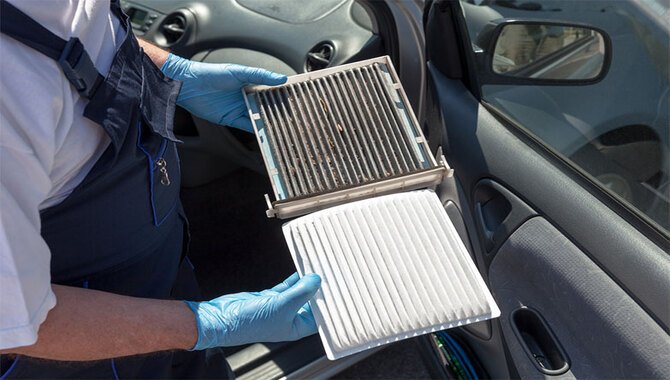
It’s important to regularly change air filters in air compressor tanks to ensure efficient and effective operation. Air compressors come with built-in safety shutdowns that should be tested yearly to ensure they are functioning properly. In addition, air filters must be replaced or cleaned at least 4,000 hours or when the air filter alarm flashes. If required, replace the filter with a reliable and high-performance filter
if your compressor is not operating efficiently. Unplug the compressor and pull out the safety valve ring to release pressure from the tank. Finally, if your safety valve does not close automatically or does not allow the release of air when pulled, replace the valve with a reliable and high-performance one. This will ensure the safe operation of your air compressor.
5. Keep The Intake Vents Cleaned
Air compressor tanks are often the source of air pollution in an office or workplace. This is because they allow compressed air to escape into the air stream, making them a pathway for airborne contaminants to enter the atmosphere. To help reduce air pollution and ensure the safety of people in the workplace, it is essential to regularly clean the intake vents of air compressor tanks.
This can be accomplished by using compressed air to keep dust away from the vents and by replacing hoses at the first sign of cracks, cuts, or other damage. Besides regular intake vent cleaning, it is also important to monitor temperature and patrol for leaks as specified by the compressor manufacturer.
6. Check And Change Compressor Oil
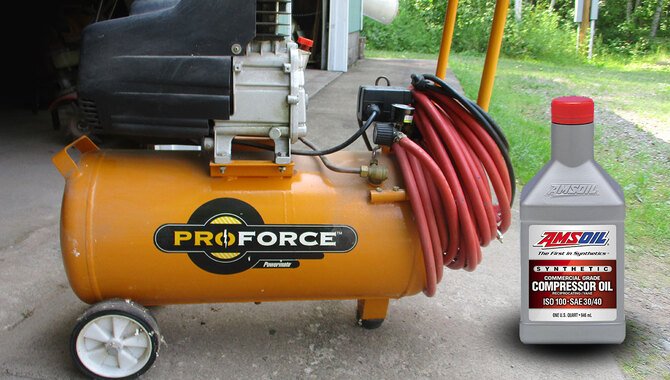
It is important to regularly check and change compressor oil to ensure efficient operation and prevent damage to the compressor. Compressors need to have their oil changed every three months to ensure they are operating at their optimal performance. In addition, compressor filters should be regularly cleaned and inspected for maintenance.
Additionally, compressor oil should be changed at least once a year to ensure the compressor is operating at its full capacity. Oil can lose its viscosity over time, causing stress and wear on the moving metal parts of the compressor. This can lead to increased maintenance costs and decreased efficiency over time. It is important to keep compressor oil in good working condition by regularly checking it and changing it when necessary.
7. Regularly Check The Hoses
There are several maintenance tips to follow to ensure the longevity of air compressor tanks. One way is to regularly inspect the hoses of air compressor tanks for signs of wear and tear. Hoses should be inspected for any cracks or kinks that can lead to a potential leak. Additionally, it’s important to check for any foreign objects that may be lodged in the hoses. If damage is spotted, replace the hose immediately.
8. Keep Fuel Tank Clean In Petrol Air Compressor And Diesel Drive Air Compressor Units
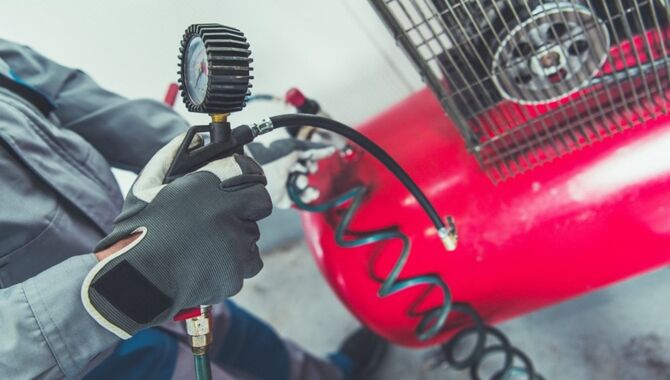
It is essential to clean the fuel tank of any air compressor regularly for regular maintenance. It’s important to ensure the exterior of the air compressor is wiped dry before operation. Also, clean the intake vents regularly to prevent buildup that can reduce the compressor’s pressure.
Check and tighten any screws, nuts, and bolts that may have become loose due to vibration. Inspect the hoses for cracks and replace any that are found to prevent leaks. Finally, review all safety procedures and ensure all necessary safety equipment is in place before operating the air compressor.
9. Clean Heat Exchangers On Screw And Valve Type Air Compressors
Cleaning air compressors is a vital part of routine maintenance. Air compressors are responsible for compressing air and delivering it to various devices such as air conditioning units, refrigerators, and freezers. They also play an important role in the production of compressed air for industrial purposes. To ensure they run efficiently and safely, air compressors must be regularly cleaned.
When it comes to the maintenance of air compressors, filters, and heat exchangers are the most important components to keep clean and in good condition. When it comes to filtering cartridges, they should be replaced or cleaned at a maximum of 4,000 hours or when an air filter alarm is flashing.
Intake vents should be regularly scrubbed and blasted with compressed air to keep dust away and hoses checked for cracks or signs of corrosion. Cleaning air compressor heat exchangers is also important to maintain their performance and efficiency. This can be done through regular cleaning or by replacing Heat Exchangers that have reached their service life.
10. Check The Safety Shutdown System On Screw And Valve Type Air Compressors
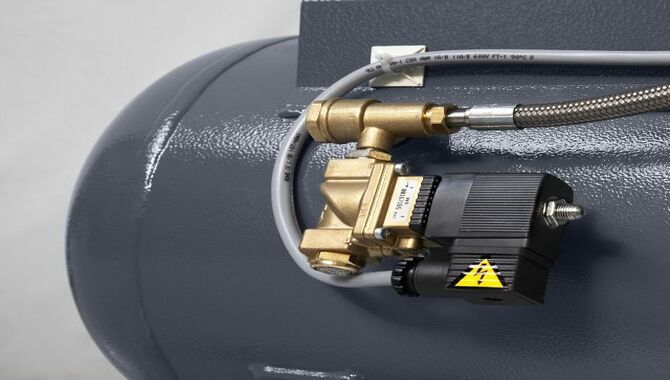
It is vital to regularly check the safety shutdown system of the air compressor. This will ensure your compressor is running safely and efficiently by checking the built-in shutdown options at least once a year.
To test the emergency shutdown option, pull out the safety valve or ring to release pressure from the tank. Also, check for air leaks by coating all fitting in a soap and water solution and observing for bubbling.
This will help ensure that your compressor is operating at its maximum efficiency and staying safe from damage. Besides, use proper controls to maintain steady system pressure and ensure only the required compressor units are brought online.
Conclusion
It is essential to follow the maintenance tips provided in the manual and carry out regular inspections to ensure optimum compressor performance. Besides, regular changing of air filters, changing of oil, and using compressed air only for maintenance purposes will also go a long way in helping to reduce operating costs. With these few simple tips, you’ll be able to maintain your compressor tank system and ensure that it lasts for as long as possible.
Frequently Asked Questions
How Do I Maintain My Air Compressor Tank?
To maintain your air compressor tank, please follow these simple steps:
Drain the tank after each use to avoid corrosion.
Make sure to replace the air filter, oil filter, oil separator, and belt annually as part of maintenance.
Remove moisture from the tank by draining the valve located at the bottom.
Store the compressor on the floor, on a low shelf, or in a low cabinet away from moisture.
Should You Put Oil In The Air Compressor Tank?
When it comes to adding oil to air compressor tanks – it’s up to you as the owner to decide. However, some guidelines should be followed to avoid any damage or accidents.
How Do You Keep A Compressor Tank From Rusting?
Keeping a compressor tank clean and rust-free is important to ensure its longevity. Here are some tips to help you out:
Regularly scrub and blast the compressor tank with compressed air to remove dust and dirt.
Replace any hoses that are cracked or damaged to prevent leaks and strain on the compressor.
Check fittings regularly to ensure they create a tight seal and replace them immediately if they are corroded or worn out.
Inspect hoses for any damage caused by cold weather or bending and replace them if necessary.
Drain the receiver tank to maximize storage capacity and prevent rusting.
How Often Should You Drain A Compressor Tank?
It’s important to drain the air compressor tank after each use to avoid corrosion and other damage. Draining the tank takes just a minute and can be done after every workday.
What Maintenance Does An Air Compressor Need?
An air compressor needs regular oil changes, filter cleanings, and after-cooler inspections every three months. Preventive maintenance checks can help to avoid equipment failure and enhance workplace safety. Reciprocating air compressors need their air filter element checked seasonally.

I am passionate about home engineering. I specialize in designing, installing, and maintaining heating, ventilation, and air conditioning systems. My goal is to help people stay comfortable in their homes all year long.
